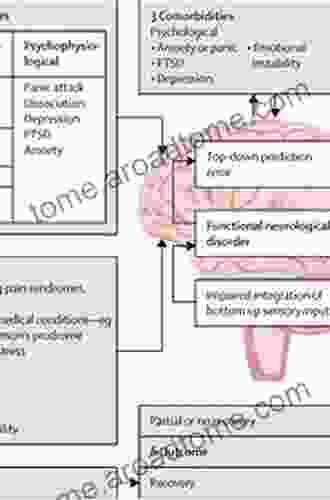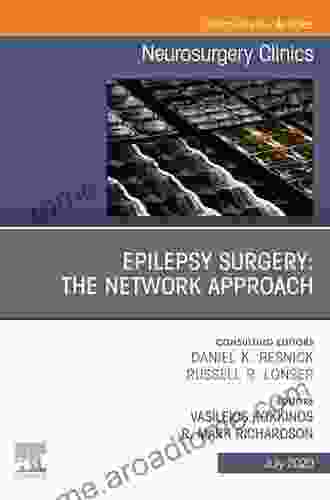Functional Neurologic Disorders: Unveiling the Enigmatic Mind-Body Connection

Welcome to the captivating realm of functional neurologic disFree Downloads (FNDs),an enigmatic group of conditions that have perplexed medical professionals for centuries. FNDs are a manifestation of the intricate connection between our minds and bodies, where neurological symptoms arise without any identifiable structural or biochemical abnormalities. This article will embark on a journey into the depths of FNDs, shedding light on their diverse presentations, diagnostic challenges, and promising treatment approaches.
Understanding Functional Neurologic DisFree Downloads
FNDs are distinct from neurologic diseases with clear organic causes, such as stroke or multiple sclerosis. Instead, they are believed to result from a disruption in the brain's regulation of bodily functions. This disruption can lead to a wide range of symptoms that mimic neurologic conditions, including:
5 out of 5
| Language | : | English |
| File size | : | 98153 KB |
| Text-to-Speech | : | Enabled |
| Screen Reader | : | Supported |
| Enhanced typesetting | : | Enabled |
| Print length | : | 612 pages |
- Movement disFree Downloads (e.g., tremors, tics, paralysis)
- Sensory symptoms (e.g., numbness, tingling, pain)
- Cognitive impairments (e.g., memory problems, confusion)
- Speech disFree Downloads (e.g., stuttering, difficulty speaking)
- Visual symptoms (e.g., double vision, blurred vision)
- Autonomic symptoms (e.g., heart palpitations, nausea)
The bewildering diversity of FND symptoms can present a diagnostic challenge, as they overlap with those of other neurologic and psychiatric conditions. However, a careful medical history, physical examination, and neurologic tests can often help differentiate FNDs from other disFree Downloads.
The Intricate Mind-Body Connection
The pathogenesis of FNDs is still not fully understood, but research suggests that they may arise from a combination of psychological and biological factors. Stressful life events, trauma, or emotional distress can trigger alterations in brain function, leading to the onset of neurologic symptoms. These symptoms can be a way for the brain to cope with or express unresolved emotional issues.
The mind-body connection in FNDs is further evident in their response to treatments that focus on the psychological aspects of the disFree Download, such as psychotherapy and cognitive behavioral therapy. These therapies aim to improve emotional regulation, reduce stress, and change maladaptive thought patterns that may be contributing to the symptoms.
Diagnostic Challenges and Differential Diagnoses
The diagnosis of FNDs requires a comprehensive evaluation to rule out organic neurologic conditions. This may involve neuroimaging tests (e.g., CT scans, MRIs),electroencephalography (EEG),and neurological exams. The presence of non-anatomical distribution of symptoms, inconsistency with known neurologic patterns, and a lack of objective findings on neurological testing can support the diagnosis of FND.
It is crucial to consider differential diagnoses such as malingering, factitious disFree Download, and primary psychiatric conditions. Malingering refers to intentional exaggeration or fabrication of symptoms, while factitious disFree Download involves the deliberate induction of symptoms for attention or secondary gain. Psychiatric disFree Downloads like depression, anxiety, and somatization disFree Download can also manifest with similar symptoms to FNDs.
Treatment Approaches
The management of FNDs focuses on alleviating symptoms, improving function, and addressing any underlying psychological or emotional factors. A multidisciplinary approach involving medical professionals, psychologists, and therapists is often recommended.
- Psychotherapy: Cognitive behavioral therapy (CBT) and psychodynamic psychotherapy are commonly used to address underlying emotional issues, improve coping mechanisms, and change maladaptive thought patterns.
- Physical Therapy: Physical therapy can assist with movement disFree Downloads, improve balance, and enhance overall physical function.
- Occupational Therapy: Occupational therapists help individuals adapt to daily activities despite their symptoms and develop compensatory strategies.
- Medications: In some cases, medications may be prescribed to manage specific symptoms, such as muscle relaxants for movement disFree Downloads or antidepressants for mood disFree Downloads.
Prognosis and Recovery
The prognosis of FNDs varies, as the course of the disFree Download can be unpredictable. Some individuals may experience a gradual improvement over time, while others may have ongoing or fluctuating symptoms. Early diagnosis and intervention are crucial to improve outcomes and enhance recovery.
Recovery from FNDs involves a combination of symptom management, emotional support, and lifestyle changes. Understanding the psychological underpinnings of the disFree Download, practicing stress-reducing techniques, and engaging in regular exercise can promote overall well-being and reduce the severity of symptoms.
Functional neurologic disFree Downloads are a complex and intriguing medical condition that challenges our understanding of the mind-body connection. Their diverse presentations, diagnostic complexities, and intricate psychological underpinnings require a collaborative and multidisciplinary approach. By delving into the enigmatic world of FNDs, we gain insights into the intricate interplay between our mental and physical health. With continued research and innovative treatment approaches, we can empower individuals affected by FNDs to navigate their challenges, improve their well-being, and live fulfilling lives.
5 out of 5
| Language | : | English |
| File size | : | 98153 KB |
| Text-to-Speech | : | Enabled |
| Screen Reader | : | Supported |
| Enhanced typesetting | : | Enabled |
| Print length | : | 612 pages |
Do you want to contribute by writing guest posts on this blog?
Please contact us and send us a resume of previous articles that you have written.
 Book
Book Novel
Novel Page
Page Chapter
Chapter Text
Text Story
Story Genre
Genre Reader
Reader Library
Library Paperback
Paperback E-book
E-book Magazine
Magazine Newspaper
Newspaper Paragraph
Paragraph Sentence
Sentence Bookmark
Bookmark Shelf
Shelf Glossary
Glossary Bibliography
Bibliography Foreword
Foreword Preface
Preface Synopsis
Synopsis Annotation
Annotation Footnote
Footnote Manuscript
Manuscript Scroll
Scroll Codex
Codex Tome
Tome Bestseller
Bestseller Classics
Classics Library card
Library card Narrative
Narrative Biography
Biography Autobiography
Autobiography Memoir
Memoir Reference
Reference Encyclopedia
Encyclopedia Dr Felicity Gray
Dr Felicity Gray Soram Khalsa
Soram Khalsa Beller Health
Beller Health Ben Hammott
Ben Hammott Douglas E Degood
Douglas E Degood National Railway Museum
National Railway Museum Benjy Sherer
Benjy Sherer David J Miklowitz
David J Miklowitz B R Hergenhahn
B R Hergenhahn James P Dorian
James P Dorian Berry Craig
Berry Craig Barry Reisberg
Barry Reisberg Bernard Guerin
Bernard Guerin Becca Stadtlander
Becca Stadtlander Jennifer Cut
Jennifer Cut Kerrie Droban
Kerrie Droban Ben Faulks
Ben Faulks Barbara Kingsolver
Barbara Kingsolver Ben Welter
Ben Welter Aubrey Kagan
Aubrey Kagan
Light bulbAdvertise smarter! Our strategic ad space ensures maximum exposure. Reserve your spot today!

 Robert FrostAdventures In How Not To Become Supermodel: The Ultimate Guide to Embracing...
Robert FrostAdventures In How Not To Become Supermodel: The Ultimate Guide to Embracing... Al FosterFollow ·14.4k
Al FosterFollow ·14.4k Ricky BellFollow ·6.5k
Ricky BellFollow ·6.5k Finn CoxFollow ·12.1k
Finn CoxFollow ·12.1k Raymond ChandlerFollow ·18.9k
Raymond ChandlerFollow ·18.9k Kendall WardFollow ·7.3k
Kendall WardFollow ·7.3k Scott ParkerFollow ·9.5k
Scott ParkerFollow ·9.5k Quincy WardFollow ·5.4k
Quincy WardFollow ·5.4k Braden WardFollow ·8.5k
Braden WardFollow ·8.5k

 Corey Hayes
Corey HayesEasy Delicious Recipes To Heal The Immune System And...
: The Cornerstone...
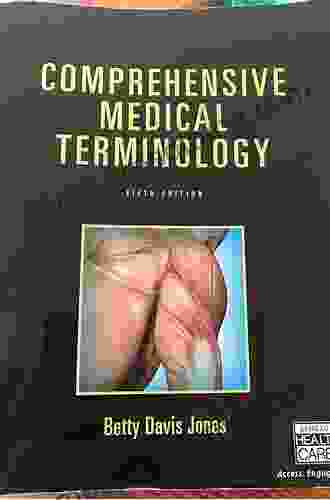
 Cody Russell
Cody RussellMastering Medical Terminology: A Comprehensive Guide for...
Navigating the...
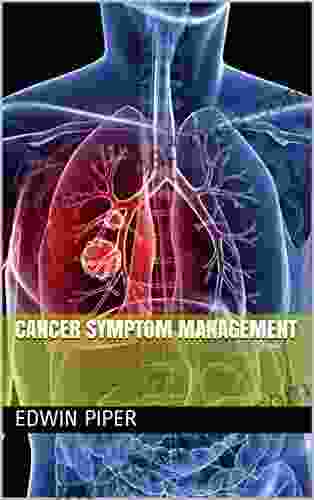
 Ibrahim Blair
Ibrahim BlairBeat Cancer Symptoms: Your Essential Guide to Symptom...
Are you struggling with the debilitating...
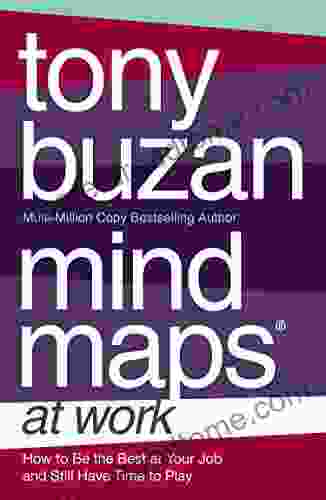
 Finn Cox
Finn CoxHow to Be the Best at Work and Still Have Time to Play:...
Are you tired...
5 out of 5
| Language | : | English |
| File size | : | 98153 KB |
| Text-to-Speech | : | Enabled |
| Screen Reader | : | Supported |
| Enhanced typesetting | : | Enabled |
| Print length | : | 612 pages |


